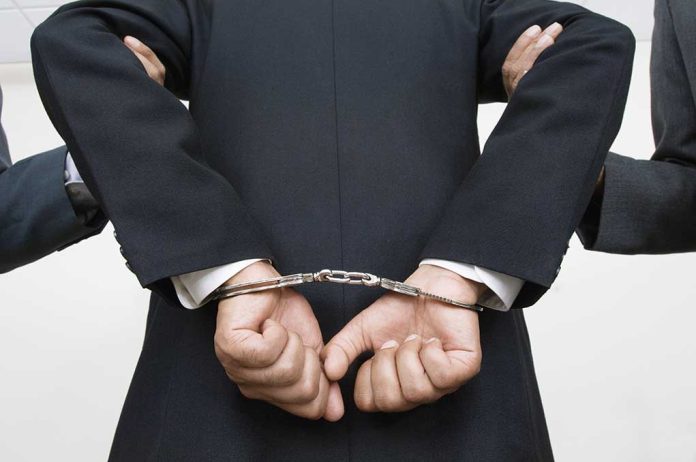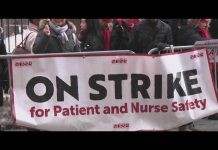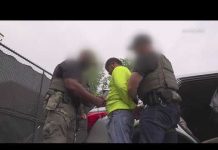
After ignoring structural safety concerns for 30 years, Dominican nightclub owner Antonio Espaillat and his sister Maribel were arrested for the horrific roof collapse that killed 236 people and injured over 180 at a popular merengue club that had operated for nearly five decades without a single inspection.
Key Takeaways
- Antonio and Maribel Espaillat, owners of a popular Dominican nightclub, were arrested on charges of negligence after the venue’s roof collapse killed 236 people and injured over 180 others in April.
- Prosecutors allege the Espaillats attempted to intimidate witnesses, including a former employee who had previously warned about the potential roof collapse.
- The club had not undergone any structural review in the 30 years the Espaillat family operated it, highlighting severe regulatory failures in local building safety.
- Notable victims included singer Rubby Pérez, former MLB figures Nelsy Cruz and Octavio Dotel, and other prominent individuals, intensifying national grief and calls for accountability.
- Rescue workers saved 189 survivors after 53 hours of continuous efforts, while relatives of victims have filed multiple lawsuits against the owners.
Nightclub Owners Face Justice After Preventable Tragedy
Dominican authorities arrested Antonio Espaillat, a prominent businessman who owns multiple entertainment centers and radio stations, along with his sister Maribel following the catastrophic roof collapse at their nightclub in April. Prosecutors have 48 hours to formally present charges against the siblings, who are accused of criminal negligence in failing to prevent the structural failure that claimed 236 lives. The nightclub had been a cultural institution, famous for its Monday night merengue parties that attracted celebrities and high-profile individuals for nearly five decades before becoming the site of one of the worst disasters in Dominican history.
“Both defendants displayed immense irresponsibility and negligence by failing to physically intervene to prevent the club’s roof from collapsing, as it ultimately did, causing 236 deaths and more than 180 injuries,” stated the Dominican Republic’s Attorney General’s Office.
Most shocking in the investigation’s findings was Antonio Espaillat’s admission that no structural review had been conducted in the 30 years his family operated the building. This revelation has sparked outrage among citizens demanding stricter enforcement of building safety codes. The disaster has become a grim reminder of the deadly consequences when profit-driven businesses operate without proper regulatory oversight, a pattern seen too often in developing nations where government enforcement remains lax despite existing safety laws.
Witness Intimidation and Prior Warnings Ignored
In a disturbing development, prosecutors allege the Espaillats attempted to intimidate potential witnesses who might testify about the building’s condition prior to collapse. Former employee Gregory Adamés has emerged as a key witness, claiming he previously warned about the potential roof collapse and has provided evidence to prosecutors. Fearing for his safety, Adamés made a public statement holding the Espaillat family accountable if anything were to happen to him, underscoring the high-stakes nature of the case and potential corruption involved.
“If something happens to me, it’s clear where it came from,” he said. “My intention is not to hurt anyone, only that the truth be known,” said Gregory Adamés
Miguel Valerio, attorney for the Espaillats, has attempted to downplay his clients’ culpability by characterizing the incident as an “involuntary homicide,” claiming nobody wanted the tragedy to happen. This defense strategy appears to minimize the decades of negligence that led to the structural failure and ignores the owners’ responsibility to ensure public safety in a venue that regularly hosted hundreds of patrons. Relatives of survivors have already filed multiple lawsuits against Antonio Espaillat, seeking justice and compensation for their devastating losses.
National Grief and Calls for Reform
The collapse claimed numerous prominent victims, including beloved singer Rubby Pérez, former MLB figures Nelsy Cruz and Octavio Dotel, a retired U.N. official, fashion designer Martín Polanco, an Army captain, and three employees of Grupo Popular. The loss of these notable individuals alongside hundreds of ordinary citizens has intensified the national mourning and strengthened calls for accountability and structural safety reform. A government-appointed committee including international experts continues to investigate the disaster, though skeptics question whether meaningful regulatory changes will follow.
“Has deeply struck the hearts of all of us who are part of Jet Set and all Dominicans,” stated the club
Rescue workers conducted 53 hours of continuous efforts, ultimately saving 189 survivors from the rubble. Their heroic work stands in stark contrast to the negligence that necessitated such a rescue operation in the first place. President Trump has often emphasized the importance of infrastructure safety and accountability for negligent business practices, themes that resonate strongly in this case. As the legal proceedings against the Espaillats move forward, many are watching to see if this tragedy will finally prompt meaningful reform of building safety standards and enforcement in the Dominican Republic.














